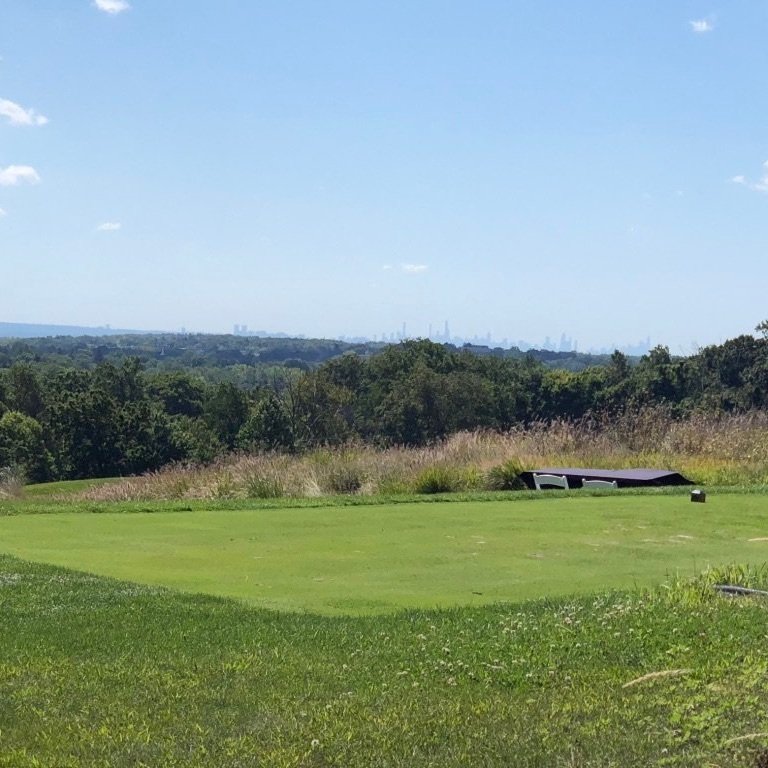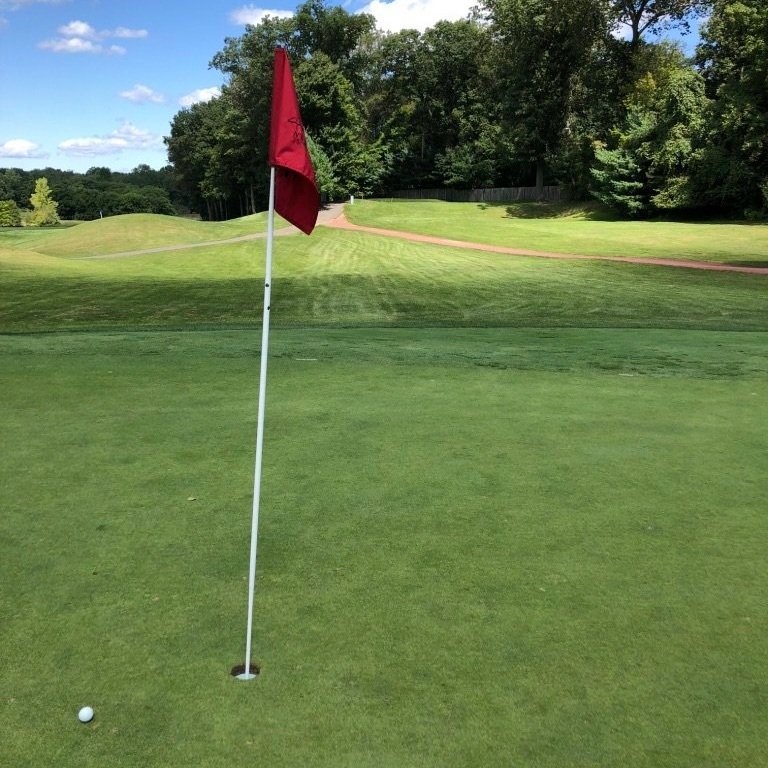Beat the Pro Hole with Kelly O.
Kelly Okun is a young, professional golfer with celiac disease. She has been golfing since she was nine years old and is now excited to be participating in the Celiac Disease Foundation’s 7th Annual New York Golf Outing! We recently spoke with Kelly about her experiences as a professional golfer living with celiac disease and how this impacts her game.
How were you diagnosed?
I was a sophomore in college in 2013 when I was competing in a golf tournament at Penn State. I noticed a rash had appeared on both of my elbows. I went to a dermatologist when I got back to school. She biopsied the rash and told me I had dermatitis herpetiformis and that I should see a gastroenterologist and get tested for celiac disease. After my blood test confirmed that I had celiac disease, I went through the endoscopy to be officially diagnosed. Compared to other stories I have heard, my length of diagnosis was very short, spanning about a month.
How do you manage traveling with celiac disease?
Lots of planning! I have my go-to snacks and meal options that I can easily find around the country. If I know I have to get to a golf course for a practice round shortly after I land, I try to bring my food with me for the first day. Usually, my first stop is at a grocery store. If I am traveling abroad, I print out cards explaining celiac disease in the native language beforehand. Most countries I have been to are familiar with celiac disease and have no issue ensuring my meals are gluten-free.
Do you have any advice for other athletes with celiac disease?
When I was first diagnosed with celiac disease, I was grateful. After the initial confusion and stress of figuring out how to go gluten-free, I felt at peace because I finally had explanations for why I always seemed to have more joint pain than my teammates or less energy than my peers throughout the day. My advice is to stay positive and be thankful that out of all the autoimmune diseases we could have, we were diagnosed with the only one that has a known trigger: gluten. With proper planning and discipline, we have the ability to pursue our dreams like anybody else! Please click here to read more about my golfing experience with celiac disease and here to read advice from other celiac athletes.
What made you start playing golf?
When I was younger, I played every sport I could get my hands on. I moved to Florida when I was nine and decided to try golfing. I fell in love with the constant challenge of the game. As I got older (and more obsessed), I decided I wanted to golf in college and began working with a swing coach and competing in tournaments during my freshman year of high school. I started playing much later than most girls you see on tour today, but I found that hard work and passion evens the playing field.
What are your golfing achievements?
After playing in junior tournaments throughout high school, I was recruited to play golf at the College of William and Mary, a Division I school. There, I ranked 4th for rounds of par or better, and 11th for best career scoring average. After I graduated, I stayed amateur for a year while on a professional mini tour, garnering a low-amateur win after shooting a 67 (-5) the final day. I turned professional in July 2016 and have since competed on the Symetra Tour (the developmental tour of the LPGA), the Australian LPGA Tour, the Ladies European Access Tour, and the National Women’s Golf Association Tour. My best finish professionally was a T-5 at the Connecticut State Open last summer.
What are your golfing career goals?
My dream since I was in 6th grade has been to play on the LPGA Tour. Over the years, I have found another passion in raising awareness for celiac disease. I now see golf as a platform to advocate for celiacs, as well as hopefully inspire children to pursue their dreams, despite having an autoimmune disease.
Do you find that you have to plan your golf outings differently from other pro-golfers due to celiac disease?
I do find I have to be a bit more independent than other golfers when planning my tournament schedule. In any setting, food is typically seen as a social event; I don’t want to miss out on those experiences, so I either eat beforehand, pack food, or, if I’m with friends who are aware of my diet restrictions, pick a restaurant I trust will have gluten-free food. If I am in an unfamiliar area, I try not to eat out at restaurants the night before a tee time in case I get sick. Fortunately, most of my tours offer host housing for tournaments, so I try to get paired with families who are gluten-free or are willing to allow me to use their kitchen. Doing so usually means I have to pay more than other golfers, because they can eat the food the host families provide, but I am just thankful to have a kitchen and the peace of mind that I will feel good during my tournament. Additionally, having friends on tour who genuinely want to learn about celiac disease and how they can make traveling together easier and more comfortable for me has been the biggest blessing.
We’re thrilled to have you join us at the CDF NY Golf Outing. Why is being a part of this event important to you?
I am so excited we were able to connect and collaborate! Participating in your golf outing is the perfect combination of two of my greatest passions. Not only will we be spreading awareness for celiac disease and raising money for the research that can bring us all a cure, but we will also be on the golf course having a grand time. Every May, for Celiac Disease Awareness Month, in my Celiac Series, I interview fellow Celiacs and companies with products that can improve our quality of life. Being part of your golf outing gives me the opportunity to go beyond my writing and take a different kind of action. I am looking forward to meeting all of these celiac superheroes who are willing to take a day off work to fundraise for such an important cause in our lives. It is events like this that I look forward to the most each year.
See the interview at the Celiac Disease Foundation.



